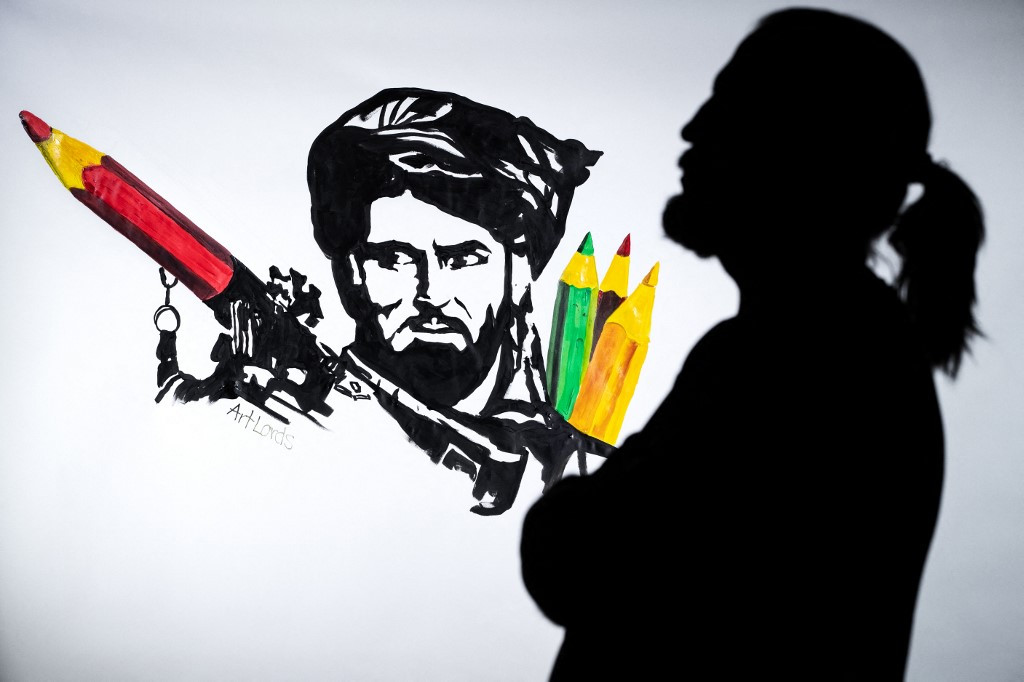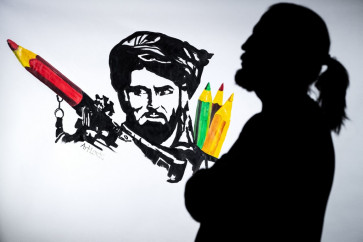Popular Reads
Top Results
Can't find what you're looking for?
View all search resultsPopular Reads
Top Results
Can't find what you're looking for?
View all search results'Art is dying': Afghan artists hope to resist Taliban rule
Two days after the Taliban seized Kabul last month, 26-year-old artist Sara took the terracotta plates she'd painted and hurled them to the ground.
Change text size
Gift Premium Articles
to Anyone
T
wo days after the Taliban seized Kabul last month, 26-year-old artist Sara took the terracotta plates she'd painted with images praising inspirational Afghan women -- and hurled them to the ground.
"Art, for me, was to be able to express everything I couldn't say with words," she said from the capital. "It dealt mainly with violence against women."
The last Taliban regime from 1996 to 2001 saw women brutally suppressed, as well as music banned and the destruction of artworks and heritage, including dynamiting ancient statues of the Buddha.
The hardline movement have insisted their new regime will be different, but like many other artists who have destroyed their work, or musicians who have broken their instruments, Sara is terrified.
"Art is my life," said Sara, who asked for her real name not to be used. "I no longer have a future."
Guerilla graffiti
Kabul has changed dramatically since the Taliban were last in power, and Sara is part of a social media-savvy youth who grew up in a capital where arts and culture were flourishing.



















